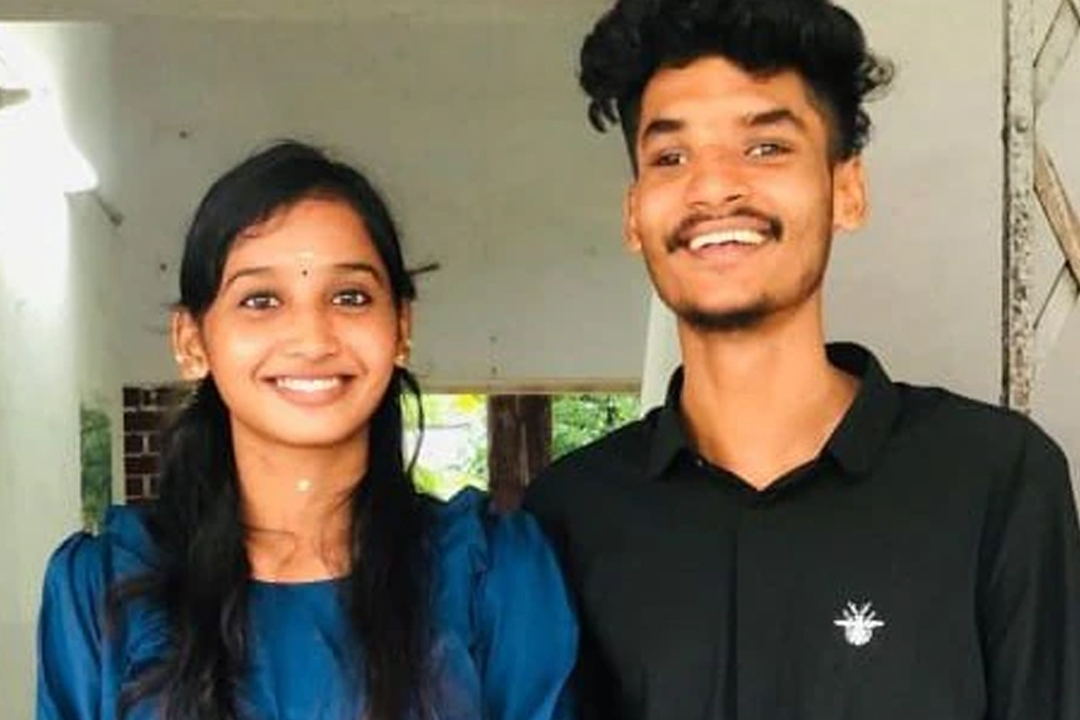
Love Jihad, Forced Conversion, and the Kerala Tragedy
Analyzing Conversion, Extremism, and Religious Freedom in Contemporary India
Abstract: Love jihad is the wrong frame – name the harm: conversion jihad.
Kerala’s recent suicide has reignited the term love jihad, a label that inflames more than it explains.
This op-ed argues for a clearer frame, conversion jihad or marriage jihad, focusing on coercion,
deception, inducement, and organized manipulation around relationships, not on consensual love.
Qur’an 2:221 and 24:3 set well known marriage boundaries, much like food taboos, and these rules
can be leveraged to pressure conversion when families, peers, or clerics fast track decisions. The piece
proposes a rights plus order approach, uphold Article 25, protect voluntary adult conversions and
interfaith marriages, criminalize coercive conversion with precision, monitor extremist dawa pipelines,
curb hate sermons legally and evenly, and disrupt proven coercion venues. It recommends narrowly
adapted administrative tools from Central Asia, filtered through India’s Constitution. Zero tolerance
for Islamist extremism and for backlash extremism, or the nation pays at both ends.
Introduction: The Kerala Suicide and the ‘Love Jihad’ Debate
The recent suicide of a young woman in Kerala, allegedly linked to forced conversion to Islam, has
reignited the contentious debate around the concept of ‘love jihad.’ This term, which has become a
political and social flashpoint, is used to describe cases where interfaith marriages – particularly between
Muslim men and non-Muslim women – are alleged to be a front for religious conversion.
However, the reality is far more complex, and the terminology itself is fraught with inaccuracies and
loaded implications. In light of this tragedy, it is crucial to examine the theological, social, and legal
dimensions of conversion within Semitic religions, especially Islam, and to propose balanced, effective
solutions that uphold both religious freedom and social harmony.
Semitic Religions and the Question of Conversion
Christianity, and Islam. While Judaism is ethnically rooted and less proselytizing, both Christianity and
Islam have, at various times, encouraged conversion as a spiritual and communal imperative. The
motivations for conversion range from genuine belief and spiritual experience to social, economic, or
marital reasons.
In India’s pluralistic society, where religious identities intersect with caste, class, and gender, the issue
of conversion inevitably becomes a flashpoint for controversy.
Islamic Rules on Conversion: Quranic References, Enforcement, and the Pork Analogy
Islamic jurisprudence provides clear guidelines regarding marriage and conversion. Two verses are
central to how many believers understand interfaith marriage:
Qur’an 2:221 (states: “Do not marry polytheistic women until they believe. And a believing slave
woman is better than a polytheist, even though she might please you…”) bars marriage with
polytheists until they believe, applying to men and women alike.
Qur’an 24:3 (states: “”The fornicator does not marry except a female fornicator or polytheist, and the
female fornicator—none marries her except a fornicator or a polytheist…”) carries a strong censure.
The one who marries a polytheist is counted with the fornicator, and such unions are forbidden to
believers. In effect, a Muslim who marries a mushrik or mushrikah is being classed either as polytheist
or as adulterer, hence proscribed.
These verses underscore the emphasis placed on religious compatibility in marriage, with conversion
frequently being a precondition for interfaith unions.
Enforcement of these rules varies by sect and society. Among certain groups, particularly those
influenced by Salafi interpretations, there is a more rigid insistence on conversion prior to marriage.
However, mainstream Islamic practice in India has historically been more syncretic and
accommodating. The current surge in hardline attitudes, therefore, signals an imported rigidity, often
linked to external ideological influences.
To put these religious rules into perspective, consider the analogy of pork consumption in Islam. Just
as the prohibition against eating pork is widely known and followed by Muslims, the rules regarding
conversion before marriage are also explicit within Islamic doctrine. However, the level of knowledge
and adherence to these rules can vary among individuals – some may be well-versed in the specifics,
while others might not fully understand the implications, just as not every Muslim may be equally strict
or informed about dietary laws.
The question then becomes one of awareness and enforcement: are Muslims as aware of the
requirements for conversion in marriage as they are about the prohibition of pork? This analogy
highlights that religious practices, while prescribed, depend in part on personal knowledge and the
influence of religious authorities.
Critique of ‘Love Jihad’: Terminology, Realities, and the Salafi Dawa
The term ‘love jihad’ is imprecise and fails to capture the multifaceted nature of related issues. In Islamic
doctrine, ‘jihad’ encompasses various dimensions; though it refers to a spiritual endeavor towards self
improvement and the quest for justice, primarily it signifies armed struggle or warfare in defense of the
Islamic faith and governance. Consequently, the phrase ‘love jihad’ utilizes terminology with both
spiritual and militant undertones, which serves to further complicate and politicize the discussion.
In reality, most interfaith marriages are consensual, and instances of organized, systematic conversion
through romance exist but are often exaggerated for political purposes. However, there are cases – such
as the recent Kerala suicide – where coercion, emotional manipulation, or undue pressure cannot be
dismissed.
The spread of Salafi dawa (proselytizing) networks, which promote a strict and exclusivist interpretation
of Islam, has grown in certain pockets, sometimes encouraging more aggressive forms of conversion.
Still, painting all conversions or interfaith marriages with the same brush is both unjust and
counterproductive, as it alienates moderate voices and undermines social cohesion.
Alternative Terminology: ‘Marriage Jihad’ or ‘Conversion Jihad’
Given the baggage and inaccuracies associated with ‘love jihad,’ it is worth considering alternative terms
that more accurately describe the phenomenon. ‘Marriage jihad’ or ‘conversion jihad’ may be more
precise, as they focus on the aspect of conversion – whether voluntary or forced – within the context of
marriage. However, even these terms must be used with caution, avoiding the tendency to sensationalize
or stigmatize entire communities for the actions of a few.
Recommendations: Education, Monitoring, and Legal Reform
- Education for All
Both Muslims and non-Muslims must be educated about the ethical, legal, and spiritual dimensions of
conversion and interfaith marriage. Schools, religious institutions, and civil society organizations
should foster dialogue and critical thinking, dispelling myths and reducing susceptibility to extremist
narratives. - Monitoring Salafi Influence
Authorities should keep a vigilant eye on Salafi dawa groups and other radical networks that promote
exclusivist ideologies. This should be done within the bounds of the law, respecting civil liberties while
preventing the spread of hate or coercion. - Legal Action Against Extremist Preachers
Preachers or organizations found to be inciting hatred, coercion, or forced conversion must be
prosecuted under existing laws. The judiciary should ensure swift and impartial trials, setting a strong
deterrent against such activities. - Upholding Religious Freedom
Article 25 of the Indian Constitution guarantees the right to profess, practice, and propagate religion.
This fundamental right must be protected, but it must not be misused as a cover for coercion or
deception. - Laws Against Forced Conversion
Enacting clear, robust laws against forced or fraudulent conversions is essential. Such laws should be
narrowly tailored to punish coercion without infringing on genuine, voluntary conversions. - Shutting Down Conversion Centers
Centers or organizations found to be systematically engaging in forced or deceptive conversions should
be closed down, following due process. - Adopting Secular Models
India can learn from Central Asian republics like Kazakhstan, Turkmenistan, and Uzbekistan, which
have instituted strict secularism, robust monitoring of religious organizations, and a clear separation
between religion and state. While their models may not be directly transplantable, the principle of zero
tolerance towards religious extremism is instructive.
Risks of Extremism: A Call for Balance and Zero Tolerance
Religious extremism can be found in various groups, including Islamic and right-wing movements
(which often emerge as a response to the former), and presents challenges to India’s secular framework
and societal stability. Addressing all types of extremism in an impartial and consistent manner is
important for maintaining constitutional principles.
Recently, the United States has taken notable steps in monitoring and restricting the activities of
organizations like the Muslim Brotherhood, viewing their potential influence with caution. This move
can serve as an early warning for India, highlighting the importance of vigilance against every form of
extremism. By observing such international precedents, India can reinforce its commitment to
protecting secularism and proactively respond to evolving threats that may undermine national
harmony.
Conclusion: Upholding Religious Freedom and Social Harmony
The tragedy in Kerala is a stark reminder of the complexities surrounding conversion, marriage, and
religious identity in India. The misuse of terms like ‘love jihad’ both overstates and understates the real
challenges, distracting from the need for nuanced, effective solutions.
By fostering education, enforcing the law impartially, and learning from global examples of secularism,
India can protect both individual freedoms and collective harmony. The path ahead demands vigilance,
compassion, and a resolute commitment to the constitutional promise of religious freedom for all.
Date: August 20, 2025
Author: Arif Hussain Theruvath (Ex-Muslim, Kerala, India)

